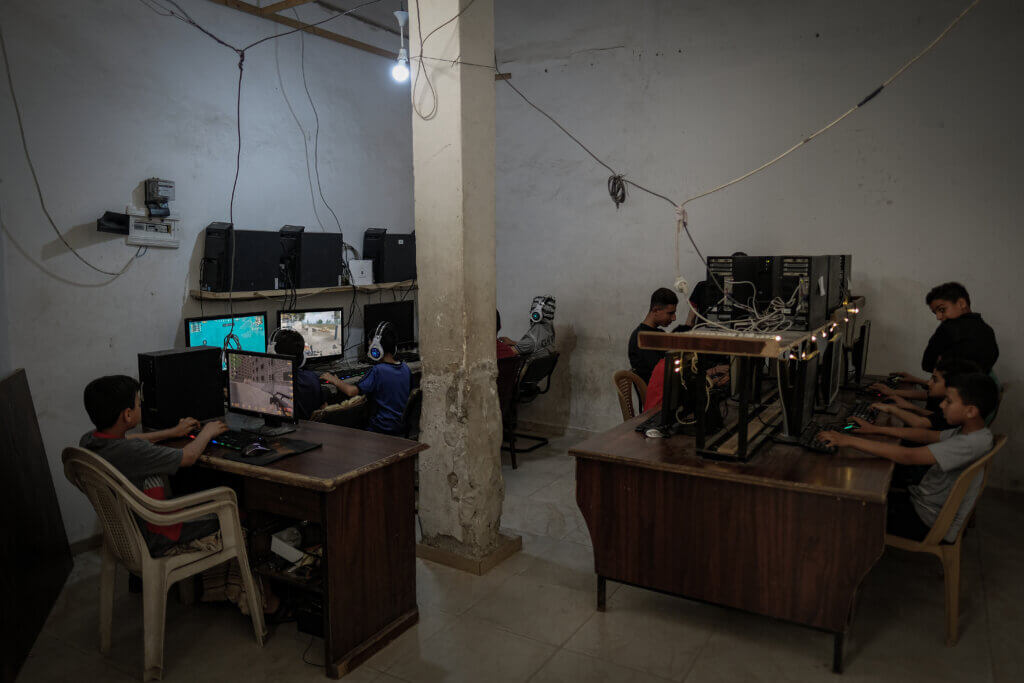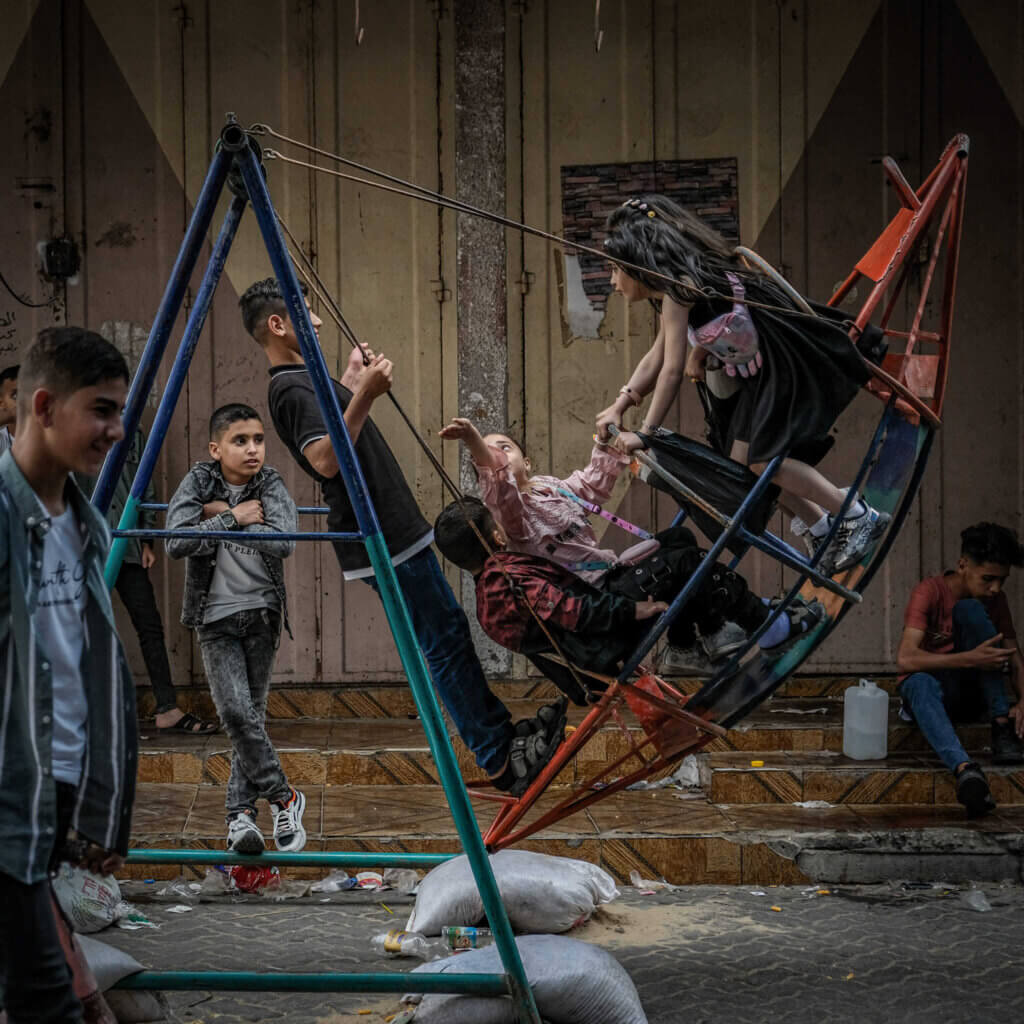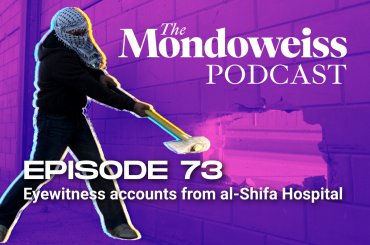Photo: A group of kids swinging on a makeshift amusement ride on the second day of Eid Al-Fitr in Gaza City. (Photo: Mohammed Salem)
Every place around the world has its own circumstances that kids grow up in which affect their whole lives. Childhood is such an essential stage in our lifetime, there is no way to forget it. You may have passed this stage a long time ago but still clearly remember your childhood mate, favorite games, and favorite teams.
For Palestinians in Gaza, childhood also includes children’s first awareness of siege and occupation, especially when they start school.
Their lessons contain student activities like a field trip to visit mountains in their homeland, near Hebron for example 60 km away, but kids in Gaza can’t do that. There is an Israeli checkpoint named the “Erez Crossing” that bans them.
Another example is visiting a zoo. It is a lovely activity kids enjoy to learn and be entertained. But there is no zoo in Gaza.
In large areas like the Al-Shejaiya neighborhood east of Gaza, kids have only the streets as playgrounds, they use them for hide and seek, football, racing, and all their games.
Along Al-Mansoura street, several people offer swings to play on, but kids have to pay to have a round. Swinging for 15 minutes costs the child their daily expenses – half a shekel (NIS). They pay this to another child who is responsible for collecting fees and pushing the swing for other kids, as you can see in the photograph above.
Salah Abu Hamada, 14, is a pusher. He keeps pushing and collecting fees from kids from noon to the evening. From this he earns 25-30 NIS daily. He got the swing from a trader who he will pay off from the work he does.
“I left school years ago, my father lost his leg in 2014 and could not work since then,” Salah explains. “I’m old enough to help my family, I have 5 younger brothers and sisters, and I need to be around the home in case something happens or my father needs anything,” Salah said.
Salah could say that he is not happy doing this work, but he has to do it. “I sleep with pain in my hands and shoulders and back, and I can’t go to see a doctor because I know I won’t be able to buy the medication, we can barely find food.”
It is really dangerous what Salah is doing, he pushes four kids and keeps standing next to the swinging wagon, if accidentally the wagon reaches his head, it will badly harm him.
In Gaza City where I live and have walked almost every street and corner of it, I have only seen only two proper places for kids’ games and entertainment: the first is a place on Gaza beach named Gaza Kids, the other is inside a huge mall in the middle of the city, for people to bring their kids while they are shopping. However, not every family can go there.
The first place is a business and charges each kid 10 NIS. Rich families in Gaza are going here, where they park their cars and let their kids have a good time.
The other is a market not a place for kids. Do not get fooled by rich people in Gaza, they are a very small slice of people. They are what remains of factories and company owners and government families.
Then there is another class, employees and their families. They are not rich, but they are not poor either, and their monthly salaries help them support their families’ basic needs like food and clothes.
Lastly, there is the majority of people, who are under the poverty line, where 10 NIS is hard to get in a long day.
Older kids, who have outgrown the swing, go to the computer game shop to play, and they also pay 2 NIS to play at the computer for an hour.
The boss there is also a child.

Photo: The computer lab (Photo: Mohammed Salem)
I went to one of the computer shops. The closest one to me is about 150 meters away from my home, they are always crowded with kids, some are just watching because they cannot afford to play.
The store is pale, white walls have become brown from the dust and sweaty hands, the plastic chairs they sit on could seriously harm their back, power cables all over the place, and kids look sad when you give their faces a close look. I would say that place was never meant to be suitable for kids.
Abdullah, 10, is sitting on the steps outside the place. He belongs to a family of nine members, his eldest brother is 15, the youngest is 2, and his parents are jobless. I told him if he would have a little chat with me, I would offer him an hour of games for free.
Abdullah’s family represents the majority of Gaza families as people love to have a large family despite their economic situation. In many cases, people do that so when they get older their sons work and can keep providing for the family.
If Abdullah’s father wants to take his kids on a trip, to let them enjoy some games and get them ice cream, that would cost him 50-70 NIS at a time where most fathers worry about how to provide basic food. Such is the reality for kids who live in the unexplainable conditions of siege and wars.
This is a new level and stage of depression that Israel is planting among Palestinians, among the new generation who were born to be in a cage.


